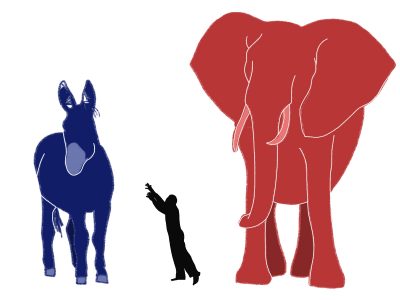It’s the dawn of a proverbial new day in the United States — a new president, a new administration and a renewed sense of confidence in the president’s ability to deal with the crises at hand.

President Joe Biden spent much of his inaugural address calling for unity in the country, especially in the wake of the horrifying insurrection that took place just two weeks prior.
“Today, on this January day, my whole soul is in this: bringing America together, uniting our people and uniting our nation,” he said.
Biden’s address was a refreshing reminder of the tone and composure a president should always have, especially in the wake of such chaos and strife.
A president should be looking to turn the temperature down in these heated moments, not stoke the flames further.
But as refreshing as Biden’s rhetoric was, one question nagged at me as I watched his address: with whom are we unifying and to what end?
Is it Sen. Mitch McConnell, R-K.Y., the leading figure of the Republican Party in former President Donald Trump’s absence? You know, the guy who blocked a vote on $2,000 stimulus checks for economically desperate Americans just last month?
Or, how about Sens. Ted Cruz, R-Texas, and Josh Hawley, R-M.O., whose deliberate objections to Biden’s Electoral College victory led to the insurrection at the Capitol?

Or, maybe we’re supposed to unify with politicians from the “moderate” faction of the Republican Party. These so-called moderates include Rep. Liz Cheney, R-W.Y., and other conservatives who voted to impeach Trump despite supporting him unconditionally prior to the insurrection — I guess storming the Capitol was taking it a step too far for these folks.
If recent history has taught us anything, it’s that when Democrats and Republicans team up in the name of “unity” or “bipartisanship,” Americans end up with the short end of the stick.
Take the start of the COVID-19 pandemic: the Coronavirus Aid, Relief and Economic Security Act was lauded as a major bipartisan victory, with both sides of the aisle working together to aid struggling Americans.
For a time, it did provide economic relief for many who needed it. But that relief was short lived. The CARES Act boosted unemployment insurance benefits rather than backstopping payroll for businesses forced to close during lockdowns. This separated workers from their jobs and pushed them onto the unemployment rolls.
The CARES Act also only included a one-time stimulus check of $1,200 for Americans who qualified rather than recurring monthly checks — an option supported at the time by prominent left-leaning lawmakers, including Sens. Bernie Sanders, I-V.T., and Ed Markey, D-M.A.
Now Americans are in desperate need yet again because CARES wasn’t as financially effective as it should have been, and Biden’s proposed $1.9 trillion stimulus package is receiving pushback from Republicans for being too expensive.
Just a day after Biden’s inauguration, McConnell undermined his calls for unity, accusing Biden of taking “several big steps in the wrong direction.”
If McConnell and the Republicans didn’t make it clear enough for you, Mr. President, they don’t want your unity. And quite frankly, you shouldn’t want it either.
This pandemic is the biggest economic and public health crisis of our lifetime, and it calls for immediate action, not bipartisan bickering.
An overwhelming majority of Americans — 75 percent — believe $600 relief checks are not enough. Furthermore, 57 percent support increasing those payments to $2,000, according to Hill-HarrisX polls.
If the majority of the country supports these actions, why does Biden’s American Rescue Plan only call for a one-time $1,400 stimulus check? Sure, the $600 Band-Aid check — the second round of stimulus — passed under Trump’s term, but $1,400 is not what was promised to the American people.
Those who have been hit hard by the pandemic will now miss out on the extra $600 they were banking on after Democrats promised $2,000 checks, but hey, I guess that’s the price of unity.
The $2,000 stimulus check is a cautionary tale — a preview of what can be expected from the Biden administration.
If unity with Republicans means these important and immensely popular proposals get half-measured and moderated, then we shouldn’t be aiming to unify with them.
“I know speaking of unity can sound to some like a foolish fantasy,” Biden said during his address.
He certainly was right about that.




















































































































